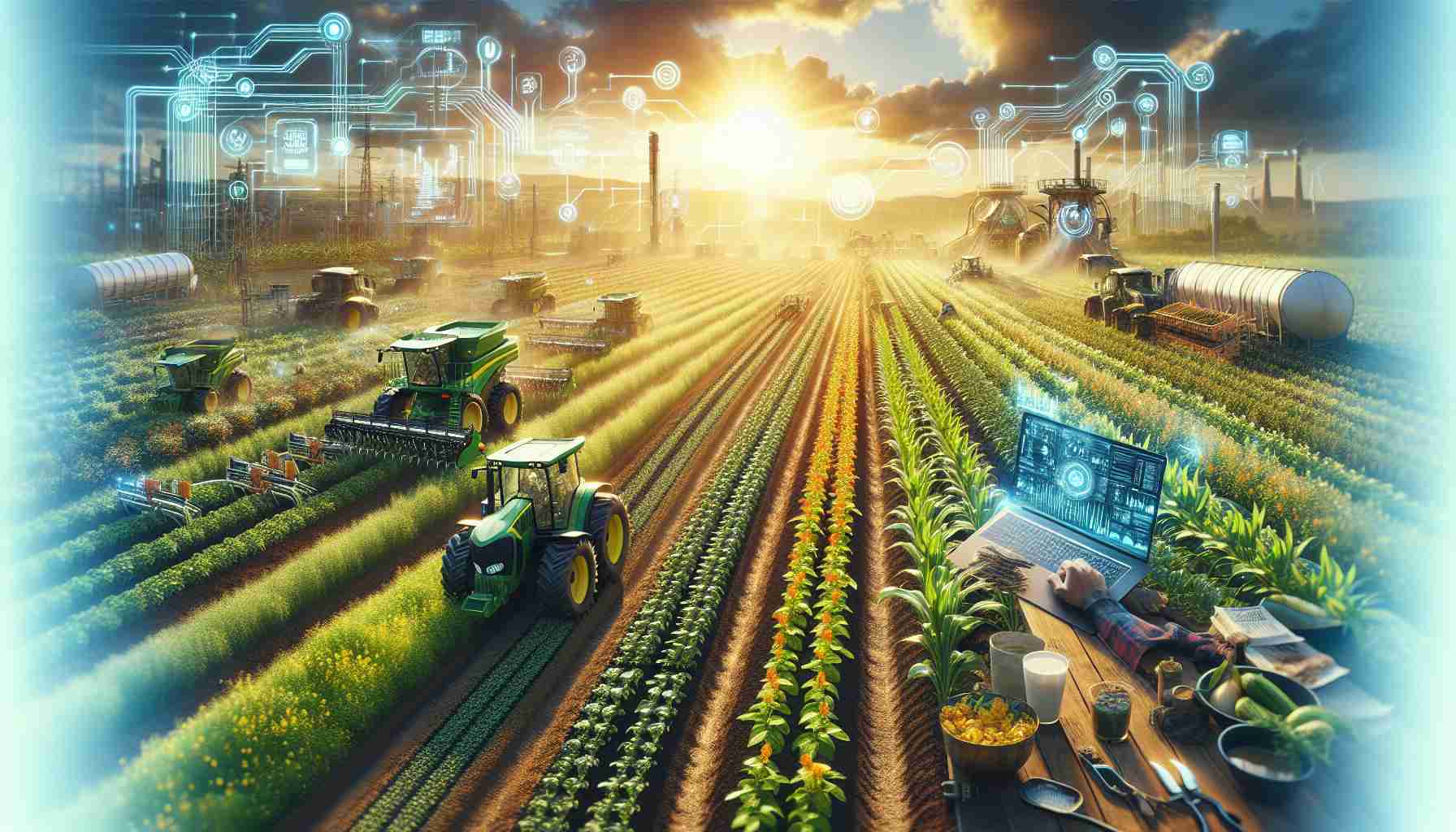Latest Developments in Farm Technology
In a week filled with exciting advancements in agricultural technology, significant milestones have been reached. Agco, a leader in farming machinery, has inaugurated a state-of-the-art training facility dedicated to precision agriculture. Spanning an impressive 22,000 square feet, this center is designed to educate farmers on cutting-edge practices and technologies that enhance crop yields and efficiency.
Meanwhile, the indoor farming sector is experiencing a surge of interest, particularly from AgEye, a company at the forefront of sustainable agricultural solutions. Recently, AgEye secured a notable investment from a prominent air filtration firm. This partnership aims to improve air quality in indoor farming environments, ensuring optimal conditions for plant growth.
These developments not only highlight the ongoing evolution in the agricultural field but also emphasize the importance of innovation in addressing modern farming challenges. With new training initiatives and strategic investments, the future of agriculture looks promising, paving the way for more sustainable practices and improved food production.
As the agricultural landscape continues to transform, these initiatives are vital for equipping the industry with the necessary tools and knowledge to thrive in an ever-changing world. The combination of technology and education is sure to shape the future of farming for generations to come.
Revolutionizing the Future of Agriculture: Innovative Trends and Technologies
## Latest Developments in Farm Technology
The agricultural sector is witnessing a paradigm shift with the incorporation of advanced technologies and innovative practices. Recent developments are significantly enhancing productivity and sustainability in farming, catering to the pressing needs of a growing global population.
Precision Agriculture Training Facilities
Agco, a prominent name in agricultural machinery, has recently launched a cutting-edge training facility for precision agriculture. This expansive 22,000-square-foot center is not just a space for technical learning but a hub for fostering innovation. It offers farmers comprehensive programs that cover the latest technologies aimed at maximizing crop yields and improving operational efficiency. These training modules are essential as they introduce farmers to data-driven farming techniques, such as using drones, satellite imaging, and sensor technology, which can drastically enhance farm management practices.
Surge in Indoor Farming Initiatives
The indoor farming industry is booming, with significant investments flowing into companies like AgEye. Their recent partnership with a leading air filtration firm is particularly noteworthy, as it aims to significantly upgrade the air quality in indoor farming setups. Improved air quality leads to healthier plant growth and increased yield potential, making this collaboration a vital step towards sustainable and efficient indoor farming practices.
Why Innovation Matters in Agriculture
As climate change and population growth pose increasing challenges to food production, innovative agricultural technologies are more crucial than ever. These innovations not only increase food security but also attempt to mitigate environmental impact. New technologies in farming can:
– Enhance Resource Management: Efficient use of water, fertilizers, and other inputs minimize waste.
– Boost Crop Resilience: Advanced genetics and breeding technologies improve resistance to pests and climate variability.
– Support Sustainable Practices: Emerging technologies enable practices such as precision farming, reducing the need for pesticides and enhancing soil health.
Pros and Cons of Modern Agricultural Technologies
Pros:
– Increased efficiency and productivity.
– Enhanced monitoring and management through data analytics.
– Potential cost savings in farming operations.
– Greater resilience against environmental challenges.
Cons:
– High initial investment for farms adopting new technologies.
– Training and education needs for effective implementation.
– Risk of technological dependence, which can be a barrier for smaller farms.
Economic Insights and Future Predictions
The agricultural technology market is on an upward trajectory, projected to grow significantly in the coming years. As more farmers embrace precision agriculture and sustainable practices, the demand for innovative solutions is expected to expand. Analysts foresee that investments in this sector will lead to a more robust agricultural economy, particularly as global food demands continue to increase.
Sustainability and Security Aspects
The direction of agricultural innovation is not only about improving efficiency but also focuses heavily on sustainability. Technologies that prioritize resource conservation and environmental stewardship are becoming crucial. Moreover, as cybersecurity becomes a more pressing concern, especially with the increasing use of IoT devices in farming, robust security measures will need to be integrated into agricultural technologies to protect farmers’ data and infrastructure.
Conclusion
These advancements in agricultural technology signpost a transformative era for the farming industry. With continuous training, strategic investments, and a commitment to sustainable practices, the future of agriculture appears bright. As the sector adapts to the challenges ahead, maintaining a balance between innovation and tradition will be key to achieving long-term success in global food production.
For more information on agricultural technologies and training programs, visit Agco for further insights and updates.
